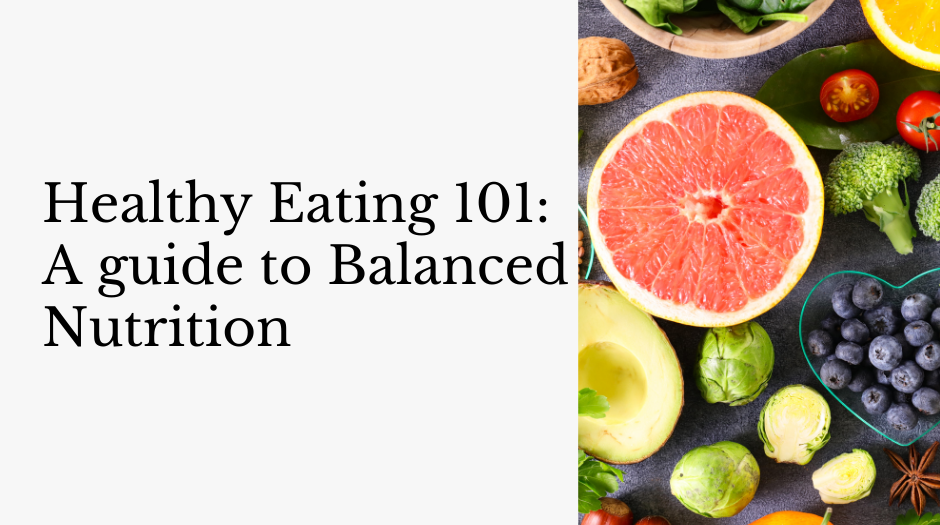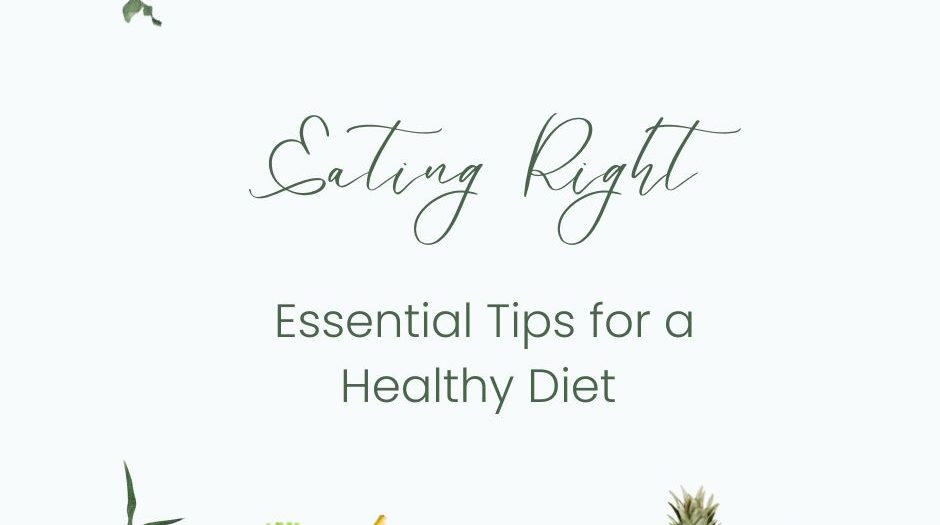Healthy Eating 101: A Guide to Balanced Nutrition
Introduction
Maintaining a healthy diet is a cornerstone of overall well-being and vitality. By prioritizing balanced nutrition, you can fuel your body with essential nutrients, support optimal bodily functions, and reduce the risk of chronic diseases.
This article will provide a guide to healthy eating, offering practical tips and insights to help you achieve a balanced and nutritious diet.
Whether you're looking to improve your overall health, manage your weight, or simply make better food choices, this guide will serve as a valuable resource on your journey to better nutrition.
Emphasize Whole Foods
Center your diet around whole, unprocessed foods that are rich in nutrients. These include fruits, vegetables, whole grains, lean proteins, and healthy fats.
Whole foods are minimally processed and retain their natural goodness, providing a wide range of vitamins, minerals, and antioxidants. They are also generally lower in added sugars, sodium, and unhealthy fats compared to processed foods.
Portion Control and Mindful Eating
Practicing portion control is essential to maintain a balanced diet. Be mindful of portion sizes and avoid eating larger quantities than your body needs. Listen to your body's hunger and fullness cues, eating slowly and savoring each bite.
Pay attention to your body's signals of satisfaction, stopping when you feel comfortably full. Mindful eating helps prevent overeating and promotes a healthier relationship with food.
Include a Variety of Nutrient-Dense Foods
To ensure you're getting a wide range of essential nutrients, incorporate a variety of foods into your meals. Aim to include different-colored fruits and vegetables, as the colors indicate unique phytochemicals and antioxidants.
Include a mix of lean proteins like poultry, fish, legumes, and plant-based protein sources. Choose whole grains such as brown rice, quinoa, and whole wheat bread. Incorporate healthy fats from sources like nuts, seeds, avocados, and olive oil.
Limit Added Sugars and Processed Foods
Excessive consumption of added sugars and processed foods can contribute to weight gain, chronic diseases, and poor nutrition. Read food labels and be mindful of the added sugars in packaged foods and beverages.
Opt for natural sweeteners like fruits or small amounts of honey or maple syrup when needed. Reduce your intake of processed foods high in unhealthy fats, sodium, and artificial additives.
Hydrate with Water and Limit Sugary Drinks
Staying hydrated is essential for overall health. Make water your primary beverage choice throughout the day.
Water helps maintain bodily functions, aids digestion, and supports healthy skin.
Limit sugary drinks like soda, fruit juices, and energy drinks, as they are high in added sugars and provide little nutritional value.
Plan and Prepare Meals
Planning and preparing meals in advance can greatly support healthy eating habits. Plan your meals for the week, make a shopping list, and stock up on nutritious ingredients.
Set aside time to batch cook or meal prep, so you have healthy options readily available. This approach helps you make better food choices, saves time, and reduces the likelihood of relying on unhealthy convenience foods.
Conclusion
Achieving balanced nutrition is a fundamental step toward a healthier lifestyle. By emphasizing whole foods, practicing portion control, incorporating nutrient-dense options, limiting processed foods and added sugars, hydrating properly, and planning meals, you can nourish your body and promote overall well-being. Remember, healthy eating is a long-term commitment that can bring about lasting benefits for your health and vitality.




